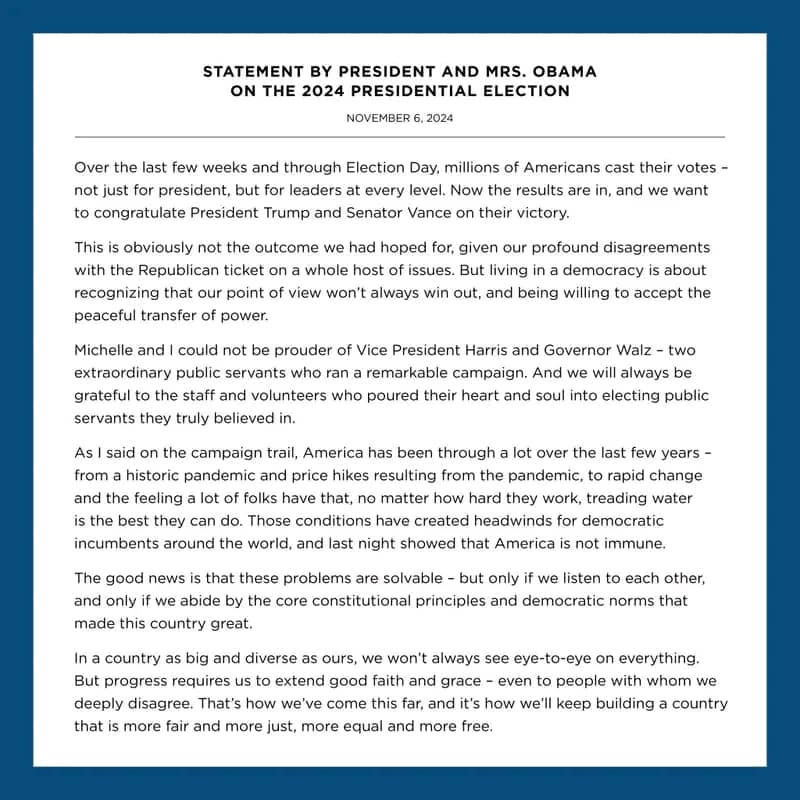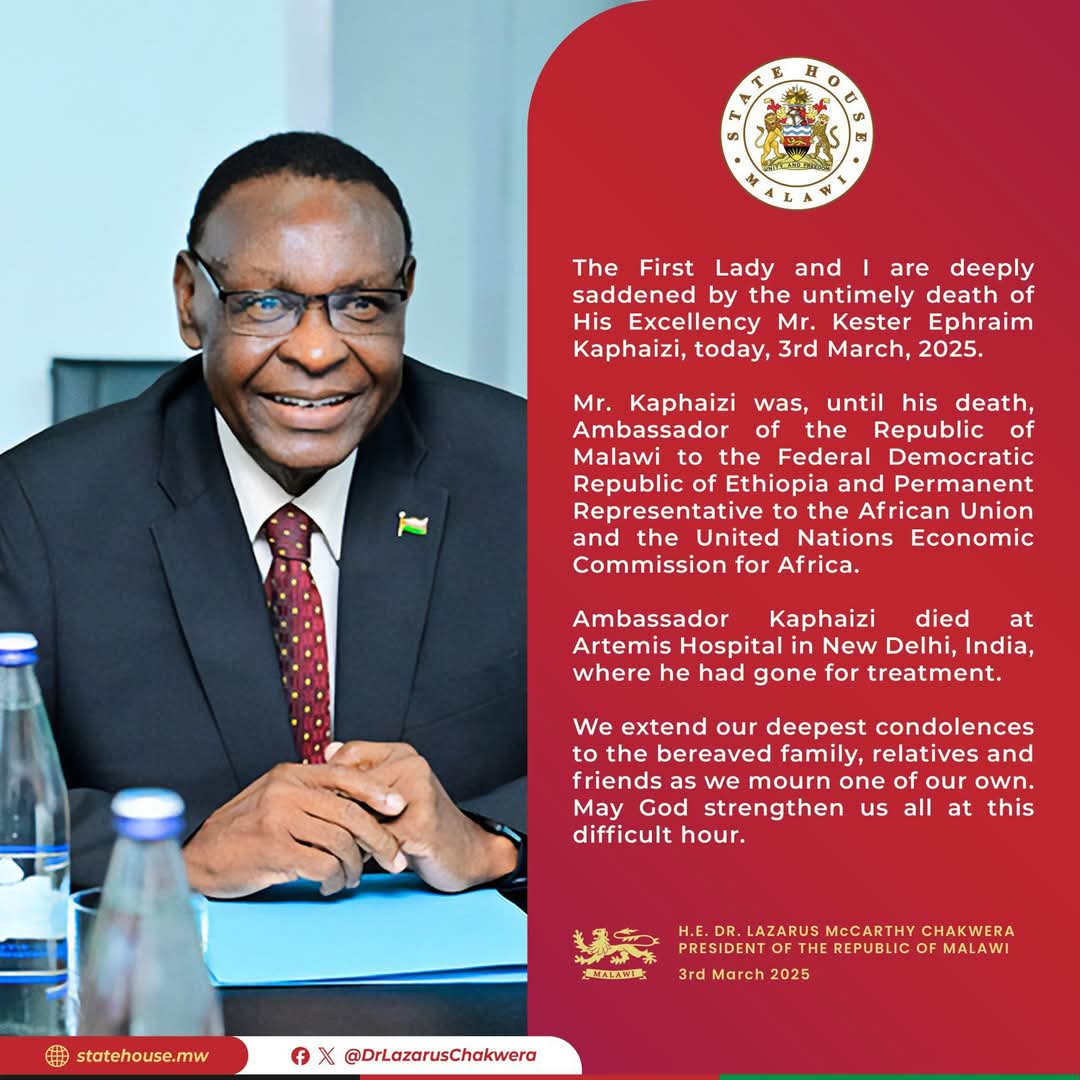By Burnett Munthali
In the wake of the Democratic Party’s recent election loss, former U.S. President Barack Obama responded with a reminder about the essence of democracy. His words, “Living in a democracy is about recognizing that our point of view won’t always win,” speak not only to the immediate context of party defeat but to the broader values that uphold democratic governance.
Acknowledging democratic principles
Obama’s statement reflects a fundamental democratic principle: the recognition and respect for differing opinions, even when they don’t align with our own. In a democracy, the will of the majority prevails, yet that does not negate the value of the minority perspective. By acknowledging that one’s viewpoint may not always triumph, citizens—and especially political leaders—demonstrate their commitment to the democratic process over partisan interest. This understanding fosters a society where diverse perspectives are respected, enabling healthy discourse and debate.
In times of political loss, as Obama’s words suggest, there is an opportunity for reflection and recalibration. Democracy is not about perpetual victories for one side, but rather about the resilience to adapt, learn, and continue contributing constructively. This perspective allows a society to evolve while ensuring that different voices remain part of the conversation.
Democracy and the power of acceptance
Accepting loss gracefully, as Obama suggests, is a critical aspect of democratic maturity. It takes both humility and strength to recognize that, in a free society, no one viewpoint will dominate forever. This approach fosters civility and respect, helping to maintain the balance between winning and losing. Acceptance also reinforces public trust in the system, affirming that while elections may change the political landscape, democratic processes remain intact and fair.
Obama’s call for acceptance is especially significant in a polarized era, where election outcomes can be viewed as existential victories or defeats. By reminding his supporters that democracy involves the likelihood of occasional setbacks, he reinforces the idea that democratic engagement remains valuable regardless of immediate outcomes. In the long term, such acceptance strengthens a country’s ability to unify after divisive elections and work together toward shared goals.
Moving forward constructively
Beyond acceptance, Obama’s words also serve as a call to action. Losing is not the end but an opportunity to reassess, strategize, and seek solutions that resonate with a broader population. For the Democratic Party, this recent setback is an invitation to reflect on its priorities, policies, and messaging. By understanding why their viewpoint did not prevail, the party can address issues that may have alienated some voters and work toward bridging divides.

This approach encourages not only political resilience but also the capacity to listen and adapt. Democracy thrives when parties remain attuned to the evolving needs and concerns of their constituents, even if it means modifying long-held stances. In this way, losses can catalyze progress and innovation, making a party stronger and more relevant.
Conclusion
Obama’s reminder about the essence of democracy is a profound lesson in humility, resilience, and the importance of continued engagement. Recognizing that one’s viewpoint may not always win does not equate to failure, but rather reflects an understanding of democracy’s true nature—a system built on inclusivity, compromise, and shared responsibility. As the Democratic Party and its supporters process this loss, Obama’s words serve as a guidepost, encouraging all involved to accept the outcome gracefully, learn from the experience, and continue contributing positively to the democratic journey.




